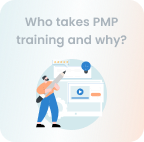






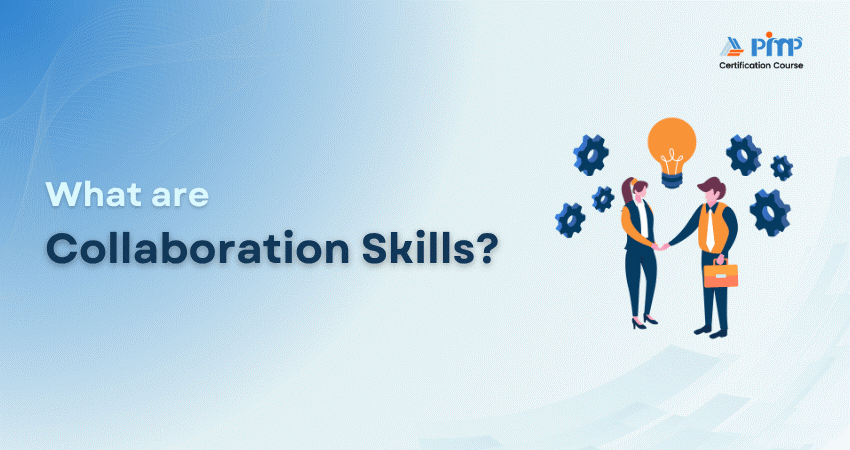


Let’s be honest: working with others isn’t always smooth sailing. Clashing ideas, missed cues, and awkward silence, we’ve all been there. But when Collaboration clicks, it's powerful. It's a secret weapon for better results, stronger relationships, and a happier team vibe. Let’s turn group stress into group success.
The trick lies in mastering a powerful habit: building Collaboration Skills. In this blog, we’ll break down exactly how you can strengthen your collaboration game in real, doable ways. Ready to ditch the group chaos and collaborate like a pro? Let’s get started.
Collaboration is an intentional process where individuals come together, contribute their unique skills, and align efforts for a shared objective. Thus, Collaboration Skills refer to the abilities that allow individuals to work effectively with others towards shared goals. These skills include clear communication, active listening, openness to different viewpoints, and the willingness to share responsibilities.
In the workplace, Collaboration Skills play a key role in building trust, reducing misunderstandings, and promoting teamwork and cross-functional cooperation. When people collaborate well, they solve problems efficiently, make better decisions, and create a positive environment.
Collaboration Skills are crucial for building productive, innovative, and positive work environments. Here's how effective collaboration adds significant value to any team:
When individuals with various backgrounds and expertise come together, they offer a variety of perspectives that enrich the problem-solving process.
1) Diverse viewpoints lead to more creative and innovative ideas
2) Multiple minds deepen the understanding of complex problems
3) Collaboration reveals issues that individuals may overlook
4) Group discussions lead to more balanced, well-informed decisions
A collaborative environment encourages continuous learning and skill development through shared experiences.
1) Team members learn from each other’s abilities and techniques
2) Constructive feedback helps improve individual performance
3) Exposure to different tools and methods broadens knowledge
4) Working together builds empathy, adaptability, and communication skills
Collaboration improves the way teams operate, ensuring tasks are completed with clarity and fewer errors. This ensures that teams deliver results effectively and with greater confidence.
1) Work is distributed based on team members’ strengths
2) Clear communication helps avoid duplication and confusion
3) Shared efforts accelerate project timelines
4) Collective ownership leads to higher-quality outcomes
Your project dreams need a plan – Our PMI-ACP® Certification makes it real and possible!
The following Collaborative Skills highlight the key abilities every team needs to build trust, improve performance, and deliver strong results together: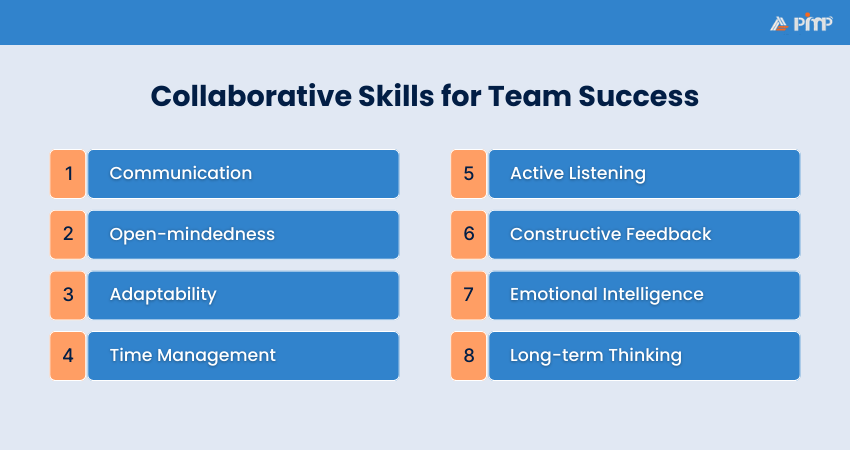
Effective communication is the foundation of collaboration. It ensures that ideas, expectations, and responsibilities are clearly shared and understood by everyone involved. Strong communicators express themselves confidently while also adjusting their message based on the audience, helping teams stay aligned and avoid misunderstandings.
Key Traits:
1) Clear and concise expression
2) Confidence in sharing ideas
3) Appropriate tone and language
4) Openness to questions
5) Consistent information sharing
Workplace Benefits:
1) Reduces errors and confusion
2) Strengthens teamwork and trust
3) Improves task coordination
Open-mindedness is the ability to consider new ideas, perspectives, and approaches without bias or resistance. It allows individuals to embrace different viewpoints and ways of working. This quality supports collaboration by encouraging inclusivity and reducing resistance to change, particularly in diverse or cross-functional teams.
Key Traits:
1) Promotes willingness to listen
2) Respect for differing opinions
3) Non-judgmental attitude
4) Openness to change and new perspectives
5) Flexibility in thinking and decision-making
Workplace Benefits:
1) Treat differing opinions as new learning opportunities
2) Encourage contributions from everyone, regardless of their position
3) Encourage innovation and inclusive decision-making
Adaptability refers to the ability to adjust to changing situations, priorities, or team dynamics. It involves being flexible in thoughts and actions, staying open to feedback, and maintaining a positive attitude. In collaborative settings, adaptable individuals help teams stay productive even when plans shift or challenges arise.
Key Traits:
1) Flexibility in approach
2) Positive attitude to change
3) Ability to adjust priorities quickly
4) The capability to remain calm in uncertainty
5) Problem-solving mindset
Workplace Benefits:
1) Helps teams manage change smoothly
2) Reduces disruption during challenges
3) Maintains productivity by seeing change as a growth opportunity
Time management is the ability to plan, prioritize, and control how you spend your time to achieve goals efficiently. As a Collaboration Skill, it ensures tasks are completed on schedule without overwhelming team members. It involves prioritizing responsibilities while respecting shared deadlines and team dependencies.
Key Traits:
1) Strong ability to prioritize tasks
2) Clear planning and an organized work approach
3) Consistent reliability in meeting commitments
4) Strong awareness of shared deadlines
5) High level of focus and self-discipline
Workplace Benefits:
1) Prioritize tasks by urgency and importance
2) Prevents last-minute stress
3) Use time-blocking methods to stay focused
Active listening as one of the Collaboration Skills means focusing on what others are saying rather than simply waiting to respond. It strengthens collaboration by ensuring everyone feels heard and understood. This provides clearer communication, reduces misunderstandings, and builds stronger trust within the team.
Key Traits:
1) Giving full attention to the speaker
2) Asking thoughtful and clarifying questions
3) Avoiding interruptions during conversations
4) Demonstrating empathy and understanding
5) Providing reflective and meaningful responses
Workplace Benefits:
1) Reduces misunderstandings through clear communication
2) Builds trust and respect among team members
3) Improves decision-making through better understanding
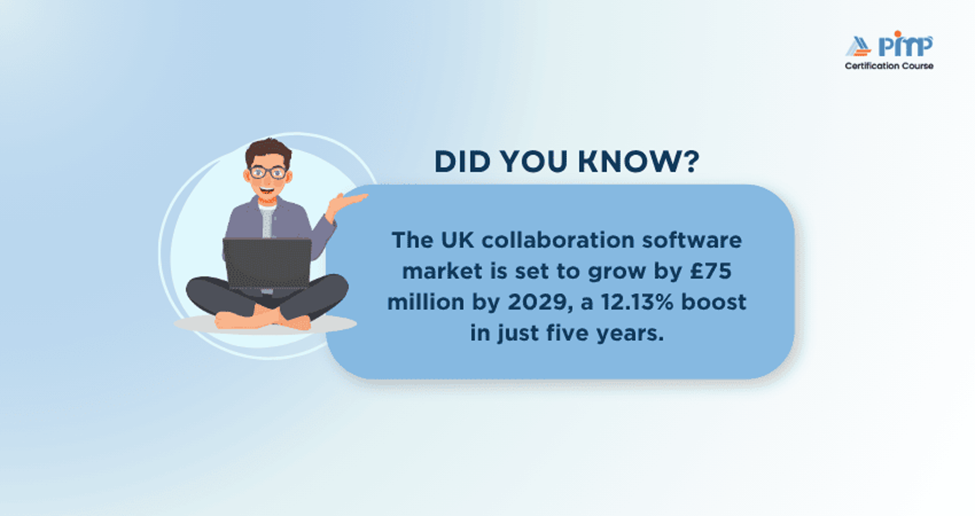
Constructive feedback helps individuals improve while maintaining positive working relationships. In collaborative teams, feedback is shared respectfully and focuses on growth rather than criticism. It also helps align individual performance with overall team and organizational goals.
Key Traits:
1) Clear and honest communication of feedback
2) Maintaining a respectful and professional tone
3) Strong focus on improvement and growth
4) Providing feedback in a timely manner
5) Offering a balanced and fair perspective
Workplace Benefits:
1) Enhances individual and team performance
2) Encourages continuous learning and development
3) Strengthens team morale and motivation
Strengthen your foundation in Project Management through PMI Project Management Ready® Certification – Register today!
Emotional intelligence involves understanding and managing emotions, both your own and others’. It plays a critical role in collaboration by supporting empathy, self-awareness, and healthy interactions. Individuals with strong emotional intelligence are capable of being calm in challenging situations.
Key Traits:
1) Strong awareness of personal emotions
2) Ability to empathize with others
3) Effective control of emotional responses
4) Awareness of social and team dynamics
5) Strong interpersonal communication skills
Workplace Benefits:
1) Improves harmony within diverse teams
2) Reduces workplace conflict and tension
3) Strengthens leadership credibility and trust
Long-term thinking focuses on sustainable success rather than short-term wins. Collaborative teams benefit when members consider future impacts while making present decisions. This approach encourages responsible planning and goal alignment. It also helps teams avoid decisions that may cause long-term challenges.
Key Traits:
1) Strategic mindset focused on long-term goals
2) Patience when working towards outcomes
3) Alignment with shared organizational goals
4) Forward planning for future challenges
5) Strong sense of responsibility and accountability
Workplace Benefits:
1) Supports sustainable organizational growth
2) Improves the quality of strategic decisions
3) Aligns team efforts with long-term goals
Conflict resolution is the ability to address disagreements constructively and fairly. Effective collaboration depends on resolving issues before they affect your workplace morale or productivity. It also helps maintain positive working relationships within teams.
Key Traits:
1) Calm and respectful communication style
2) Fair and unbiased judgment
3) Strong problem-solving and mediation skills
4) Empathy towards different viewpoints
5) Willingness to compromise when needed
Workplace Benefits:
1) Maintains positive professional relationships
2) Prevents escalation of workplace conflicts
3) Promotes a respectful team culture
These Collaboration Skills ensure tasks are structured effectively, and responsibilities are shared appropriately. Good delegation supports collaboration by allowing team members to contribute based on their strengths. Therefore, these skills improve accountability and clarity within teams.
Key Traits:
1) Strong organizational and planning abilities
2) Clear definition of roles and tasks
3) Trust in team members’ capabilities
4) Strong sense of accountability
5) Confident and informed decision-making
Workplace Benefits:
1) Improves overall team efficiency
2) Balances workloads across team members
3) Enhances collective team performance
Learn essential project management concepts and skills with the Certified Associate in Project Management (CAPM) ® Training – Join soon!
Improving Collaboration Skills helps individuals work better and deliver positive results in their workplace. The following strategies highlight practical ways to strengthen collaboration and build more effective, supportive teams:
Emotional intelligence helps you understand your own feelings and how they affect others. When you manage it well, you can be calm during challenges and communicate clearly with your team.
It also involves understanding how others feel. Showing empathy and respect builds trust and makes team members feel supported, which improves teamwork and cooperation.
Setting clear goals and objectives helps everyone know what they are working towards. When goals are shared, team members understand their roles and how their work supports the team’s success.
Shared goals also keep teams focused and organized. They reduce confusion, improve accountability, and help team members work together, promoting positive Collaboration Skills.
Recognizing and appreciating team efforts makes people feel valued for what they are doing. Even simple appreciation can boost their motivation and promote team members to stay engaged.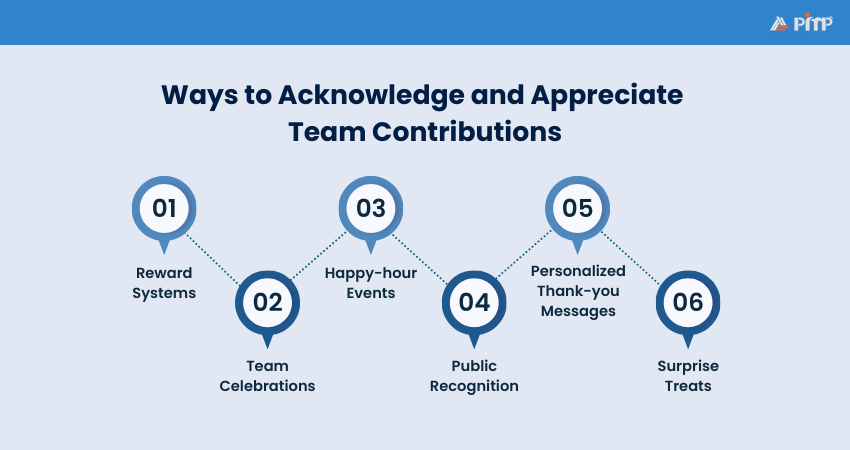
When contributions are acknowledged, trust and positivity grow among the team. This encourages people to support each other and work collaboratively.
Being open to different ideas helps teams find better solutions. Everyone brings unique experiences, and listening to these viewpoints improves creativity and problem-solving.
An open mind also reduces misunderstandings in your workplace. Respecting different opinions creates a more inclusive and cooperative team environment.
Active listening involves giving full attention to others and trying to understand their message before responding. This skill improves communication by reducing misunderstandings and ensuring everyone feels heard.
Practicing it builds trust and respect within teams. When people feel listened to, they are more engaged, more willing to collaborate, and more open to constructive discussions and feedback.
Working well with others makes everything easier and more enjoyable. When we listen, share ideas, stay organized, and support each other, we get better results as a team. Setting clear goals, being honest, and taking responsibility help build trust. No matter where you work or study, strong Collaboration Skills make a big difference. Start small, keep practicing, and you’ll see how much smoother teamwork can be.
Start your journey from project planner to powerhouse - Program Management Professional (PgMP)® Certification fuels the leap!






© Copyright 2025. All rights reserved. Contact: PMP® TRAINING ACADEMY.


